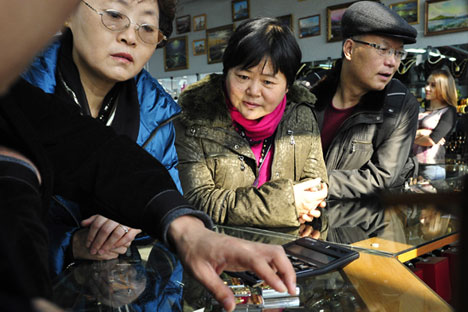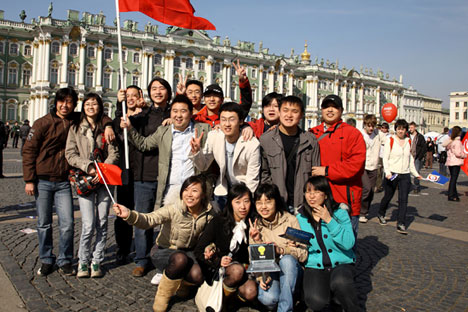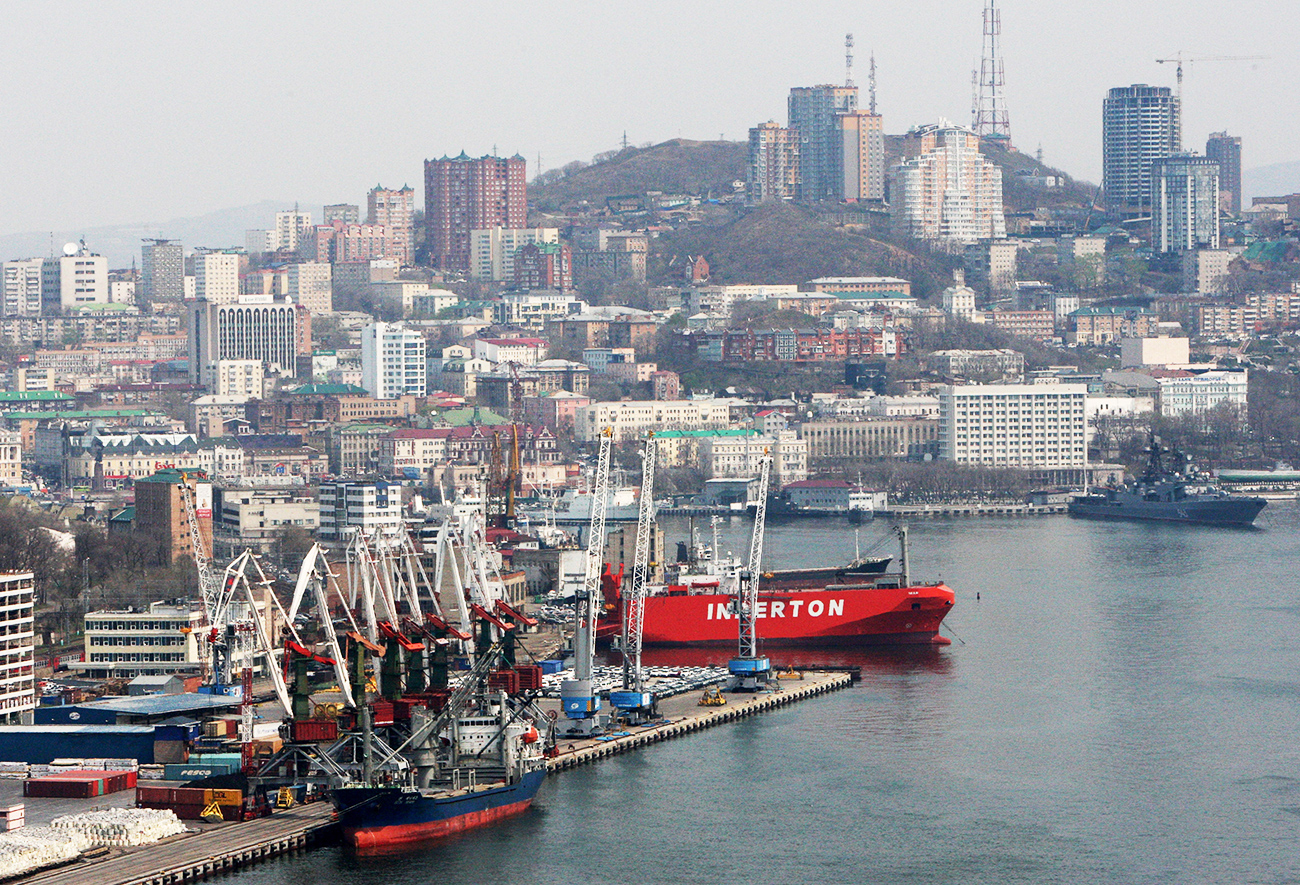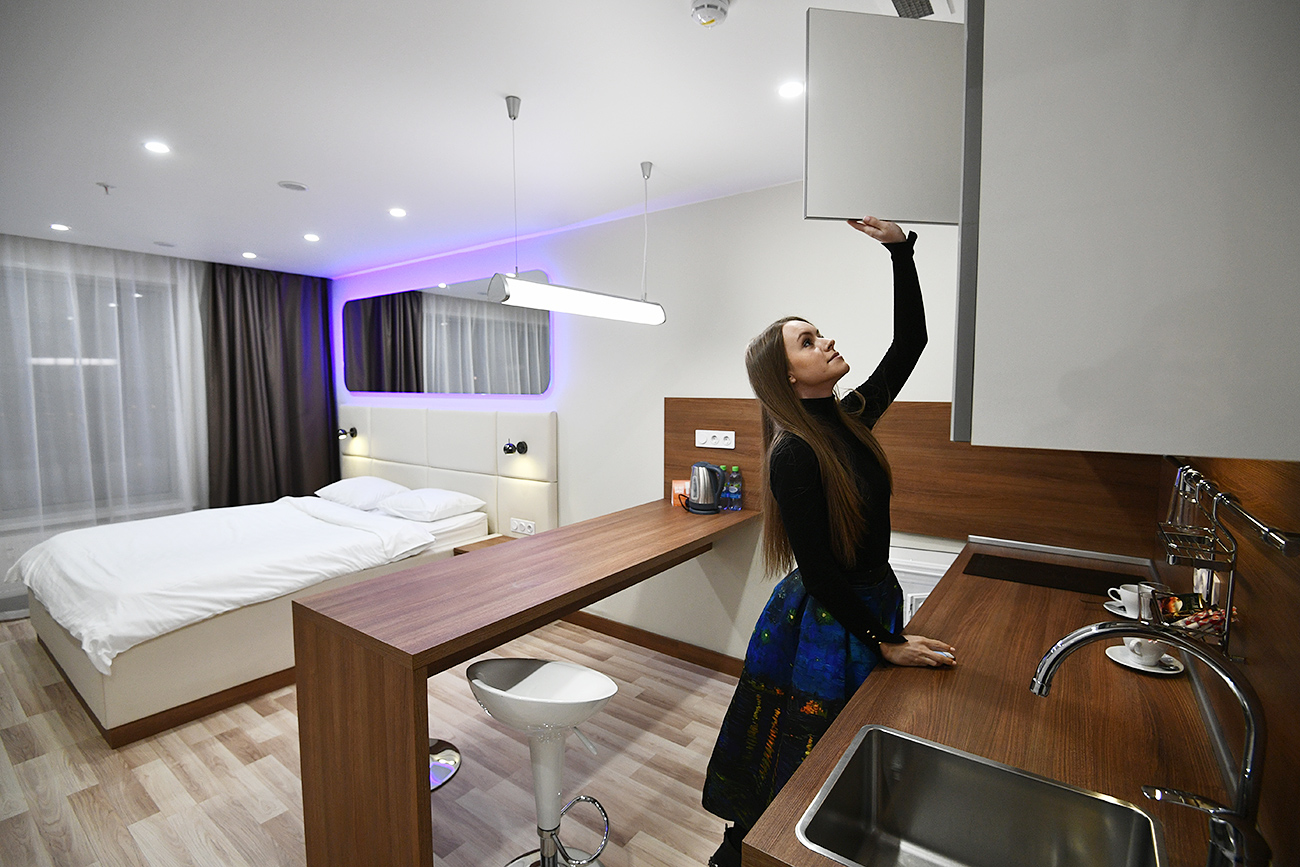How ‘zero dollar’ companies are scamming Chinese tour groups in Russia
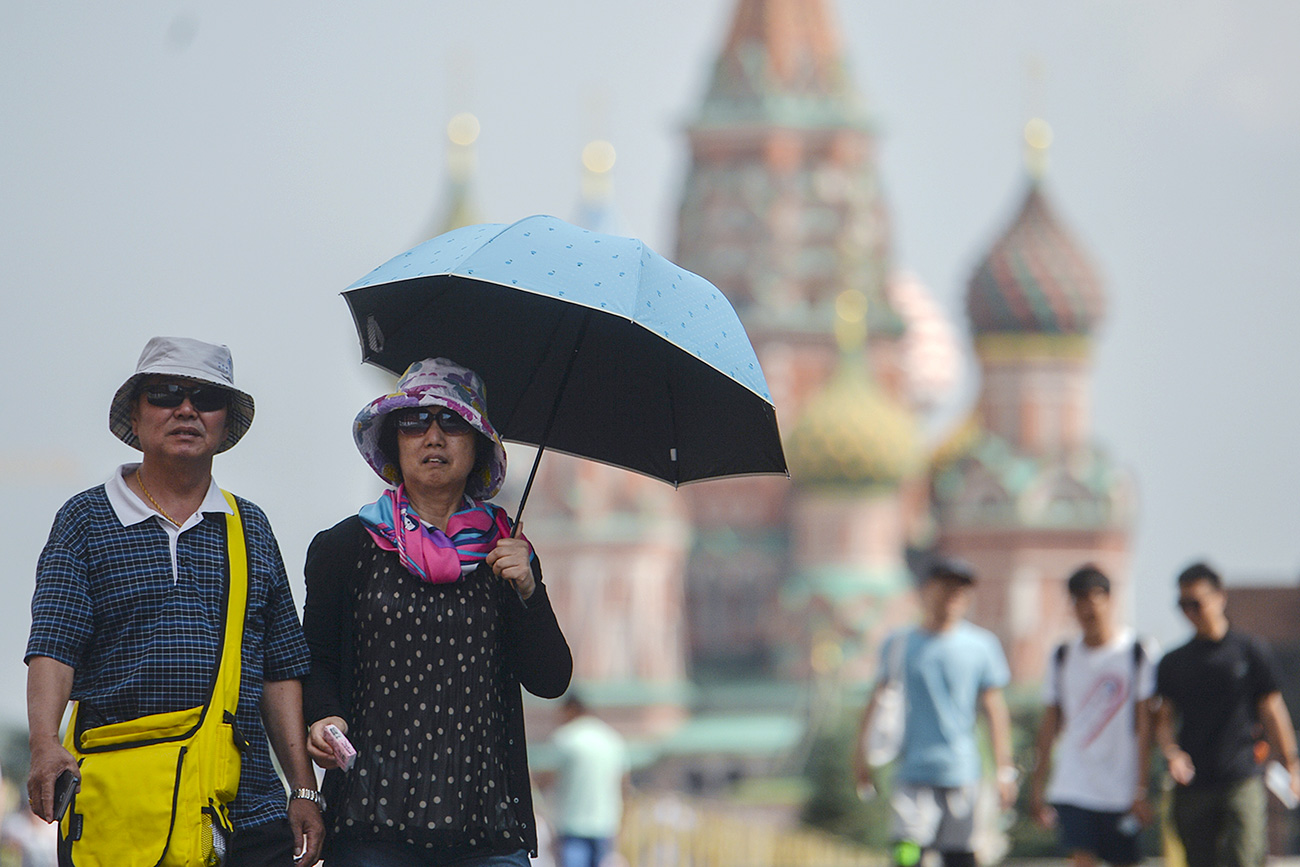
Many Chinese tourists have been left disillusioned after taking so-called ‘zero dollar’ tours.
Eugene Odinokov/RIA NovostiWhen Chinese tourist arrivals started rising in Russia, many expected to get immediate returns from their investment in the industry. But according to a source in the Russian tourism industry with first-hand knowledge, an elaborate scheme has been worked out to scam Chinese tourists and cheat the Russian exchequer of valuable revenue.
According to the source, who asked to protect his identity, some Russian tour operators are a legal host for Chinese tourists. However, they strike deals with sketchy Chinese tour group leaders and “do not even see the tour groups.” The source adds, “Chinese tourists fly to Moscow, then disappear for two weeks and then they are seen waving their hands and saying goodbye.”
According to the source, most of the tourists are easily manipulated since they are elderly first-time travelers who want to visit a former communist country. In general they are financially stable, generous and also like shopping.
According to World Tourism Cities Federation, on average Chinese tourist spends 20000 yuan or $2900 on a vacation and more than 57.8 percent of the money is dedicated to shopping.
Chinese tour leaders take advantage of this and march obedient tour groups into the stores that belong to Chinese businessmen, where their fellow countrymen talk of the “best sales in the city.” However, according to RBTH’s interviewee the cost of goods is at least three times higher that market price. Tourists are also being told to pay in cash, which eliminates every possibility to track the money spent.
The revenue is divided in equal parts, none of which comes back to the Russian tourism industry. “The industry loses at least $500 million annually and this is a direct threat to legal tour operators, hotel and the retail business,” RBTH’s source says.
Modus operandi of the scheme
One of the main factors that made this scheme a reality is an agreement on visa-free group travel between Russia and China, signed in February 2000. According to this document, Russian and Chinese tourists are allowed to travel to each other’s country within organized travel groups without acquiring a visa.
However, to work with Chinese travelers, a tour agency has to be legally registered by the Russian Tourism Federation and be allowed to accept tourists under the visa-free agreement. The latter is possible only by having an authenticated list of Chinese tourists, tour-leaders, guide-translators, a carefully laid out route and bus and hotel reservations – in the industry it is known as a “tour product.”
This is where the glitches in the system can be seen. The 2000 visa-free agreement does not prohibit the selling of the lists to anyone interested. Some legal Russian tour agencies profit by selling the lists to their fellow colleagues who are not allowed to accept tourists from China. The source says that the most commonly used excuses are “peak season” and a “high workload.”
The agencies that are not allowed to work with organized Chinese groups have teamed up with Chinese tour-group leaders to form the “black tourism industry.” These group leaders have managed to grow into a tightly coordinated group. They are not legal entities and therefore don’t pay taxes or declare their income.
How it works
When the list is in the hands of the “black tourism market,” the price for a tour in China is reduced to the possible minimum. Thus it is called a ‘zero dollar tour,’ and is extremely popular among Chinese customers.
In general, Chinese tourists are trusting and would never believe that their compatriots are scamming them. When abroad they like going on a shopping spree, which has become their distinctive feature across the globe. Shopping in China is too expensive for middle-class Chinese. “Hefty import tariffs and consumption taxes, as well as higher pricing strategies, can increase prices in China to 590 percent more than a shopper would pay elsewhere,” according to the Economist.
In Russia, Chinese tourists prefer to buy amber and gold jewelry. “Chinese tourists believe that Russian gold and amber are among the best in the world,” RBTH’s source explains. They also like Russian prices for luxury European brands since “it is the same price as in Milan, but [our] country is cheaper to visit.”
Before starting the trip tourists are told that Russia is a “wild country where you can only use cash,” the source adds. Chinese travelers are only taken to the Red Square and Kremlin. Since tour leaders are not specialists in Russian culture and history, they can tell “incredible stories of Lenin being the grandson of Peter the Great.”
The lack of knowledge of Russian history is compensated by the information on “best sales and cheapest shops in Moscow.” Several shops that officially belong to legal Chinese businessmen open their doors for fellow countrymen. Shops sell souvenirs, amber, gold and luxury brands that are highly valued in Chinese society at a fanciful price.
The revenue is divided by the tour leader, shop owner and tour companies in China. The companies in China get their commission either in cash via a tour-leader or by WeChat transactions, the source says.
Purchases like that are not subjects to declaration and are not taxable, which makes it impossible to track the money flow.
All in all, Chinese tourists are not satisfied with Russia, where they are herded into stores like cattle. Most of the people on ‘zero dollar tours’ never come back. Russian operators that legally and directly work with organized Chinese group tourists have suffered on account of the scam and are unable to influence the market.
An official clampdown
Both Chinese and Russian authorities are aware of the scam. For now, the source believes the Russian Tourism Federation is planning to add amendments to the intergovernmental agreement of 2000. They would bar the selling of the tour list and work out in detail the steps needed for stopping the scam.
Tourist associations are also planning to introduce a bill to the Russian State Duma (lower house of parliament) that would only allow Russian citizens to work with organized group tours.
Chinese authorities are even more worried than their Russian counterparts. The security and wellbeing of their tourists is at risk since many tour leaders are neglecting the basic needs of elderly travelers. For now, authorities are planning to make a list of companies that are not a part of the scheme so that in the future Russian tour operators would be able to check with their Chinese counterparts.
However, strict measures can negatively impact the market. According to Nikkei Asian Review, officials in Thailand, which is another mecca for Chinese tour groups, managed to close three “’zero dollar tour companies’, but the crackdown resulted in decreasing the numbers of tourist arrivals from China, from 10 million to 8.9 million for 2016.”
If using any of Russia Beyond's content, partly or in full, always provide an active hyperlink to the original material.
Subscribe
to our newsletter!
Get the week's best stories straight to your inbox
